
RIVER GOD ACHELOUS ATRIBUTED TO G. MARCHIORI Galerie Golconda
Originally in Greek mythology, Achelous was the god of all rivers and water of the world. During Hellenistic times, he was only associated with the Achelous river. This is the largest river in all Greece. Every river has its own river spirit and Achelous was considered the chief of all the deities of rivers. Etruscan Mythology

Ancient Greek Art Print River God Kaystros Minimalist Wall Etsy
Alpheus or Alpheios ( / ælˈfiːəs /; Ancient Greek: Ἀλφειός, meaning "whitish"), was in Greek mythology a river [2] (the modern Alfeios River) and river god. [3] Family An engraving by Bernard Picart depicting a scene from Ovid 's Metamorphoses in which Alpheus attempts to capture the nymph Arethusa.

The Rivergod Nile Greek Neilos. PioClementino Museum, Vatican City Editorial Image Image of
The River Styx is a principal river in the Greek underworld (also called Hades). The river forms a border between the underworld and the world of the living. The word means hate in Greek and is named after the goddess, Styx. She was the daughter of Oceanus and Tethys. History The River Styx is not the only river in Hades.
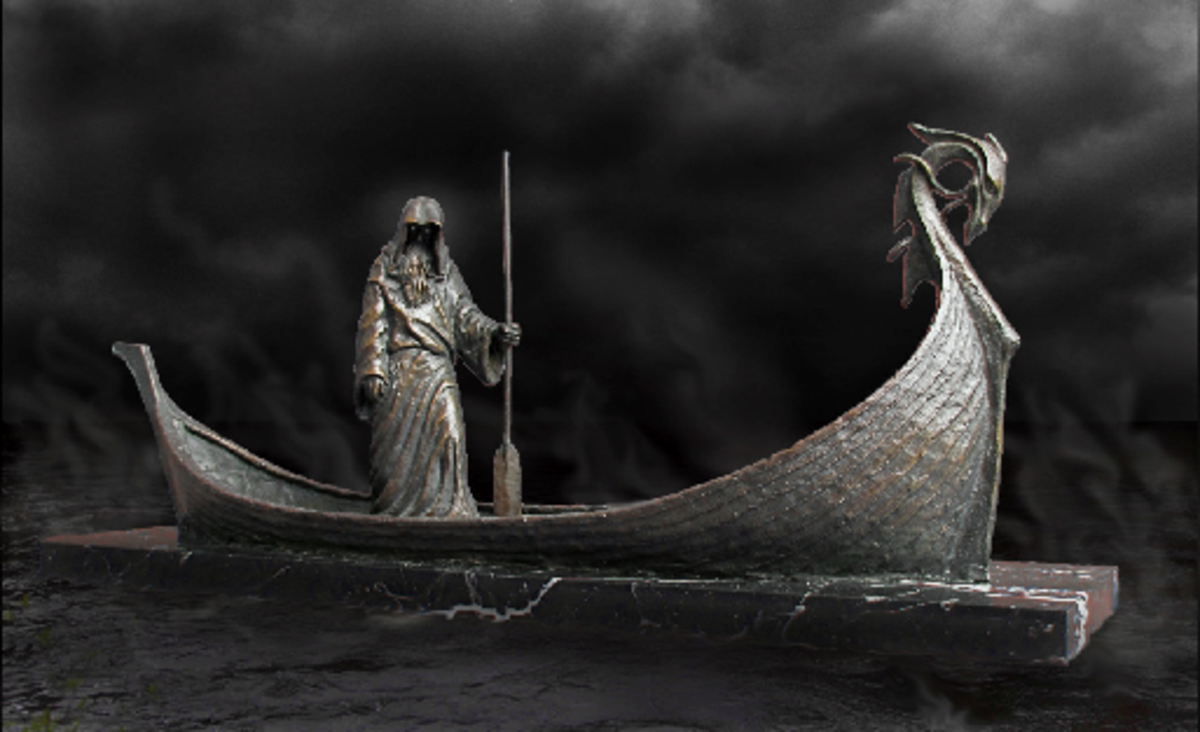
Hades Greek God and Archetype of the Underworld Owlcation
Nilus / ˈnaɪləs / or Neilos ( Ancient Greek: Νείλος or Νεῖλον), in Greek mythology, was one of the Potamoi who represent the god of the Nile river itself. Family Nilus was one of 3,000 river gods children of the Titans Oceanus and his sister-wife Tethys. [1]

River God on Sarcophagusஜ♡ ローマ彫刻, ルネサンスアート, ギリシャ美術
Hades was the Greek god that ruled over this part of the world, as well as his kingdom. While the Underworld may be the land of the dead, in Greek mythology it also has living botanical items. The kingdom of Hades features meadows, asphodel flowers, fruit trees, and other geographical features.

ArtStation river god
In ancient Greek religion and mythology, Achelous (also Acheloos or Acheloios) ( / ˌækɪˈloʊ.əs /; Ancient Greek: Ἀχελώϊος, and later Ἀχελῷος, Akhelôios) was the god associated with the Achelous River, the largest river in Greece. According to Hesiod, he was the son of the Titans Oceanus and Tethys.
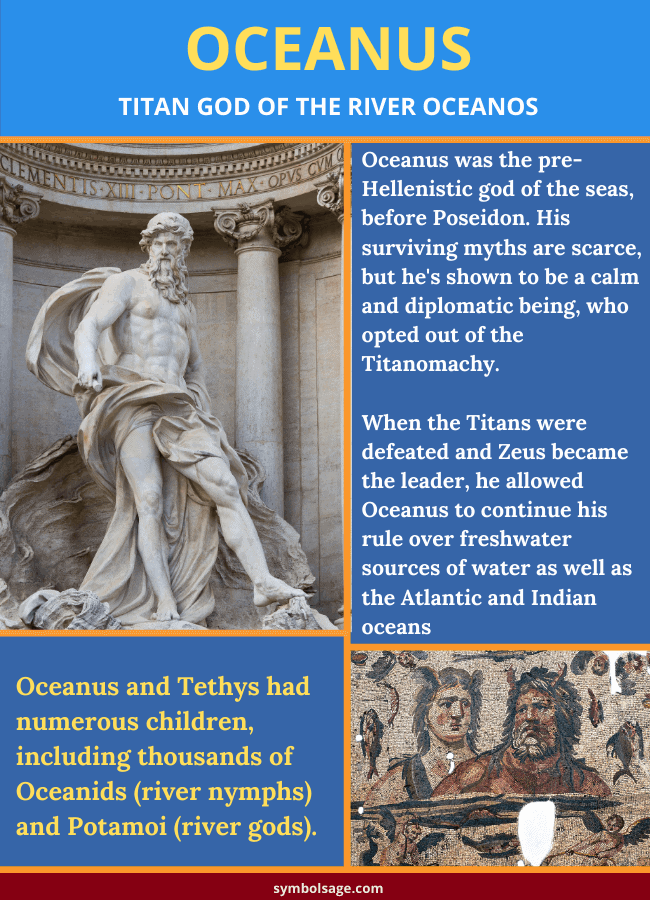
Oceanus Titan God of the River Symbol Sage
Kathleen Kuiper Achelous, shape-shifting Greek river god who was the personification of the Achelous River, one of the longest rivers in Greece. Achelous, who was worshipped as the god of fresh water, was chief among his 3,000 brothers, and all springs, rivers, and oceans were believed to issue from him. His
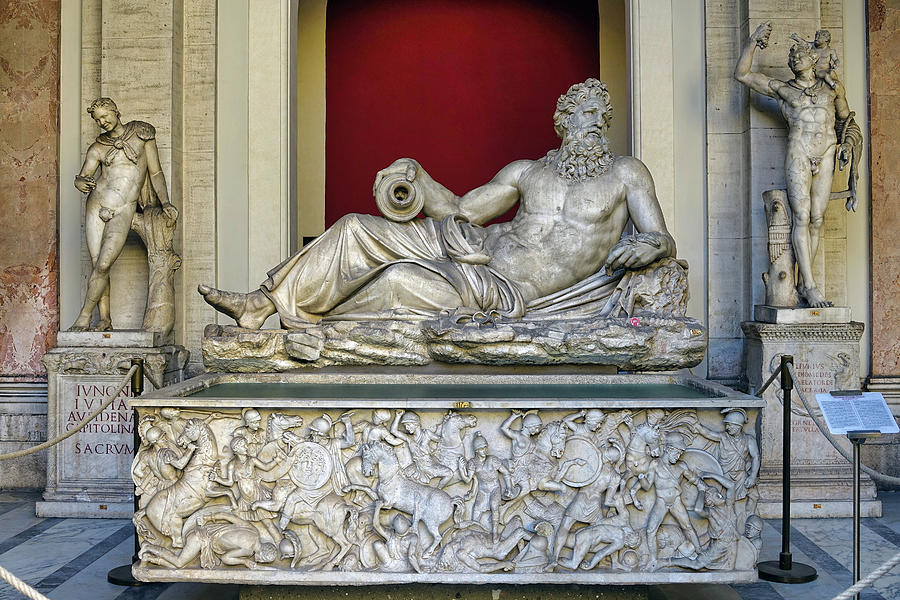
Statue Of The Greek River God Tiberinus At The Vatican Museum Photograph by Rick Rosenshein
River Alpheus. ALPHEIOS (Alpheus) was a River-God of Elis and Arkadia (Arcadia) in the Peloponnesos, southern Greece. He fell in love with the nymph Arethousa (Arethusa) who fled his advances and leapt into the sea. Alpheios pursued her across the sea to the island of Syrakousa (Syracuse) in Sicily where the spring of Arethousa burst forth from.

an aerial view of a winding road in the middle of a mountain range with blue water
Styx In Greek mythology, Styx ( / ˈstɪks /; Ancient Greek: Στύξ [stýks]; lit. "Shuddering" [1]) is a goddess and river of the Underworld. Her parents were the Titans Oceanus and Tethys, and she was the wife of the Titan Pallas, and the mother of Zelus, Nike, Kratos, and Bia.
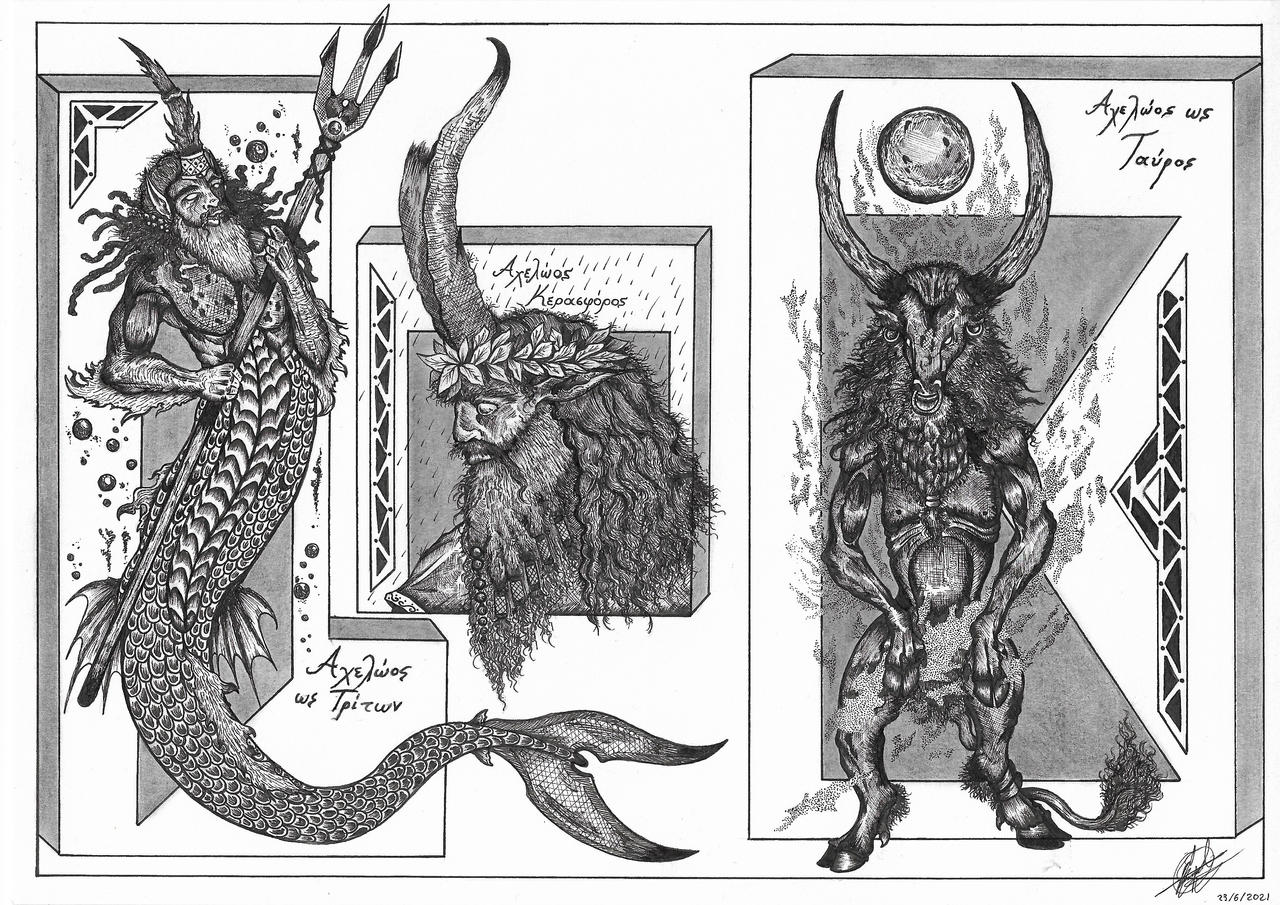
The three faces of a greek river god by on DeviantArt
Greek Gods A Complete List of Greek Gods, Their Names & Their Realms of Influence There have been many Greek gods mentioned across thousands of stories in Greek mythology - from the Olympian gods all the way down to the many minor gods.

The Greek River God Achelous Greek, Ancient coins, God
Achelous was a deity in Greek mythology, the river god of the eponymous river, which is the largest in Greece. Therefore, Achelous was the most important of the river gods. Although some sources mention that he was the son of Gaea and Oceanus, it was generally believed that all river deities were descendants of Tethys and Oceanus.Achelous was depicted either as a gray-haired old man, or a.
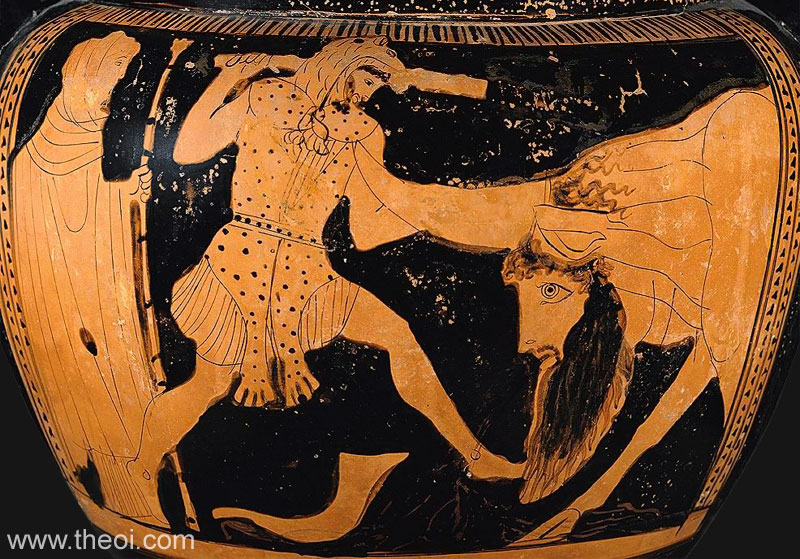
The River God Poem Analysis
the river-god pyriphlegethon Cicero, De Natura Deorum 3. 17 (trans. Rackham) (Roman rhetorician C1st B.C.) : "Orcus [Haides] is also a god; and the fabled streams of the lower world, Acheron, Cocytus and Pyriphlegethon, and also Charon and also Cerberus are to be deemed gods.
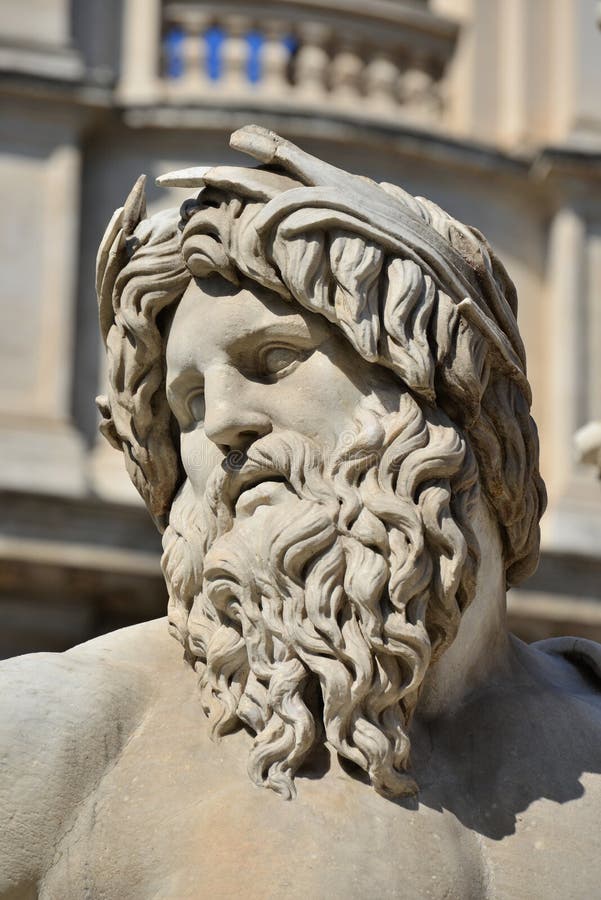
Greek or Roman God statue stock image. Image of jupiter 125965749
Styx, in Greek mythology, one of the rivers of the underworld.The word styx literally means "shuddering" and expresses loathing of death. In Homer's Iliad and Odyssey, the gods swear by the water of the Styx as their most binding oath.According to Hesiod's Theogony, if a god perjured himself, he was rendered insensible for a year and then banished from the divine society for nine years.

waswseffortblog Roman Marble River God, 1st3rd... Roman and Greek Art Roman Gods, Roman
ACHERON RIVER OF THESPROTIA. The region of Thesprotia in north-eastern Greece had a river named Akheron (Acheron) which was closely identified with the underworld stream. Near the river was a chthonic shrine of the gods Haides and Persephone. Thucydides, The Peloponnesian War 1.

The Rivergod Nile Greek Neilos. PioClementino Museum, Vatican City Editorial Stock Photo
Peneus, river god of Thessaly flowing from the foot of Pindus. He was the father of Daphne and Stilbe, love interests of the god Apollo. Scamander, who fought on the side of the Trojans during the Trojan War, and was offended when Achilles polluted his waters with the a large number of Trojan corpses. In response, he overflowed his banks.

Greek River God cutepuppyuniquenames cutepuppieswithbreednames Goddess names, Names with
In Greek mythology Achelous was a River-God of Aetolia in central Greece. As the god of the largest river in the region, he was often described as the god of fresh-water in general. Achelous once contested with Heracles for the hand of the Aetolian princess Deianeira. During their wrestling match the hero tore off one of the god's horns which became the Cornucopia or Horn of Plenty.
